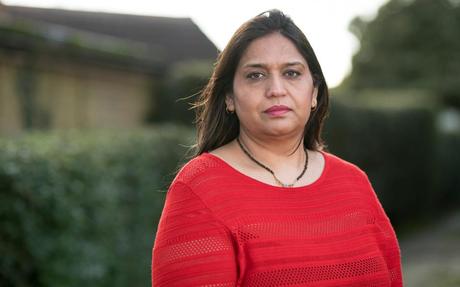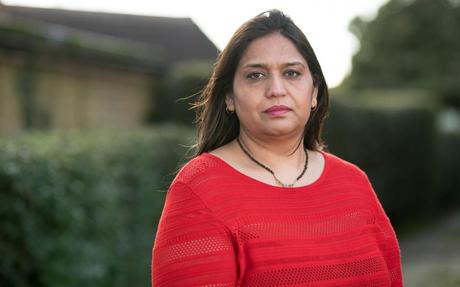The Post Office chose not to investigate problems with its Horizon software five years before the witch hunt ended, fearing it would undermine the prosecution, documents show.
Between 1999 and 2015, more than 700 sub-postmasters were wrongfully prosecuted by the organization for false accounting, theft and fraud.
However, internal emails show that Post Office lawyers talked about investigating problems with the Horizon software as early as 2010, but took no action for fear it would undermine the prosecution.
Ultimately, it turned out that the software that identified shortcomings was defective.
The organization's criminal justice chief stressed to his colleagues that the "consequences" of such a move could include halting current and future prosecutions - a move that would generate "negative publicity."
Months later, an internal investigation commissioned by the Post Office said it was important to be "crystal clear" that any investigation into Horizon "would have to be made public in court."
However, the Post Office did not make this information public and continued to prosecute sub-postmasters and sub-postmistresses - including a sub-postmistress who was sentenced to 15 months in prison while pregnant.
Politicians branded the latest revelations as "terrible" and accused the post office of "obstructing justice".
Meanwhile, Alan Bates, the campaigner whose fight for justice was depicted in the ITV drama Mr Bates vs The Post Office, said he had "no doubt" the organization had known which state Horizon had been in "for many years".
Emails released to the Post Office's Horizon IT investigation reveal how Rob Wilson, who joined the Post Office in 2002 as head of criminal justice, responded to "issues" relating to the Horizon system.
Mr Wilson wrote the email after he was not invited to a conference call with colleagues about Horizon.
In response to a memo from another colleague proposing several actions, including "conducting full investigations into integrity issues," Mr. Wilson wrote on March 3, 2010: "If one thinks there is a problem with Horizon, then it is clear that the action outlined in your memo is not only necessary, but absolutely necessary.
The story continues
"The consequence, however, will be that the initiation or continuation of criminal proceedings will be inappropriate."
Mr Wilson went on to say that lawyers for accused sub-postmasters would "inevitably" argue that any ongoing investigation would show that the Post Office had "no confidence" in Horizon and that continuing to prosecute would be "an abuse of the criminals". process".
He then suggested that proceedings for prosecution could be suspended pending an outcome, but added: "If this were to be adopted, the resulting negative publicity could lead to enormous problems for the POL, such as the press and the media would see as a justification for the current challenges. ."
It comes as secret recordings are said to show the Post Office knew about the problems with Horizon for at least two years before CEO Paula Vennells denied there were any problems.
The contents of the tapes, shared with The Times, show that the post office's business secretary drafted a letter to Ms Vennells in 2013 saying it was possible to access Horizon accounts remotely without postal workers' knowledge , the newspaper reports.
This is contrary to the post office's position that there was no miscarriage of justice.
It is thought that a jury would not have been able to reach a guilty verdict if they knew the accounts could be changed remotely.
In 2015, Ms Vennells wrote in an email that she should be able to say that remote access was not possible, before telling MPs on a business committee that there was "no evidence" of miscarriages of justice.
Mr Wilson's email was sent five months before pregnant sub-postmistress Seema Misra was sentenced to 15 months in prison after a false £74,000 deficit was identified at her branch in West Byfleet, Surrey.
She later said: "It's hard to say, but I think if I hadn't been pregnant I would have committed suicide."
Her conviction was upheld at the Court of Appeal in 2021.


When questioning Mr Wilson about his email about the investigation, Jason Beer KC, the inquiry's lead lawyer, said: "What you're saying with this email is: 'The Post Office will be in serious trouble if we go ahead with a independent investigation into the integrity of Horizon'."
Mr Wilson replied: "Well, not necessarily. It depends on what the independent report would say."
He then tried to downplay the email, saying he had "overreacted" after being excluded from a meeting.
Mr Wilson claimed it was not his "intention" to give a "whole bunch of reasons not to even look" - as Mr Beer suggested.
He said: "I think I overreacted when I was excluded from what I considered crucial to me as head of the criminal justice team."
When contacted by The Telegraph about the emails, Mr Bates said: "There is no doubt in my mind that they have always known what condition [Horizon] is inside. They have known it for many, many years. I do not doubt that."
He added: "I'm not the least bit surprised. As I've always said, it was either arrogance or ignorance, and I think sometimes it was both."
The post office ignored the Ismay report
Concerns that an investigation into possible software problems were also supported by the Post Office's failure to respond to an internal review, later dubbed the Ismay Report.
On behalf of the Post Office, former Ernst & Young auditor Rod Ismay admitted during the investigation that he had been tasked with finding "reasons for certainty" and that it was not his job to investigate "allegations" against Horizon.
However, his report made clear what the consequences would be if further investigation were conducted into any problems with the system.
The document, published in August 2010, said: "It is also important to be crystal clear about any review if it is commissioned - any investigation should be disclosed in court.
"While we would make the review to comfort others, any perception that POL is questioning its own systems would mean that all criminal charges should be stayed."
Meanwhile, Dave Pardoe, one of the Post Office's senior security managers at the time, told the inquiry it was clear the impact on other prosecutions was concerning.
He testified last November: "There was a continuing feeling that the system was fit for purpose."
"I was never in a meeting when the concept of curbing prosecutorial activity was discussed with me."
He added: "It is clear that there was a fear that this would immediately cast doubt on prosecutions that had already been completed. I was never aware of those kinds of conversations, no."
Sir John Redwood, a senior Conservative MP and former head of policy unit No 10, said: "These revelations are appalling and I am shocked but not surprised that hundreds of people have had to deal with a post office blocking justice.
"That's what it felt like at the time, and I knew from my own local experience that honest, decent people were caught up in something they couldn't fight. I am shocked by all this."
Sir Jacob Rees-Mogg, a former business secretary, said: "This is getting worse. The fact that prosecutions were based on faulty evidence was bad enough, but the failure to investigate when they were concerned that something was wrong is even less forgivable.
He added: "Anyone who has the power to prosecute has a duty of justice - it's not that you're arguing a case, it's that you're endangering someone's freedom."
A Post Office spokesperson said: "We fully share the objectives of the current public inquiry, designed to uncover the truth about what happened in the past and to ensure accountability. "It is for the inquiry to reach its own independent conclusions after considering all the evidence on the issues it is investigating."
